
Discover the Enchanting Wadi Hasa: Jordan's Hidden Gem
Wadi Hasa, often referred to as the Grand Canyon of Jordan, is a spectacular natural wonder that offers a unique and adventurous experience for visitors. This stunning canyon stretches over 24 kilometers and is filled with lush greenery, waterfalls, and natural pools, making it a paradise for nature lovers and adventure seekers alike. Hiking through Wadi Hasa is an unforgettable journey. The trail takes you through narrow gorges and wide valleys, with the sound of flowing water accompanying you throughout. As you navigate the rocky terrain, you will be rewarded with breathtaking views of the canyon's majestic cliffs and vibrant vegetation. The hike can be challenging, but the beauty of the surroundings and the sense of accomplishment make it well worth the effort. For those who prefer a more leisurely experience, Wadi Hasa also offers opportunities for relaxation and rejuvenation. The natural hot springs found within the canyon are perfect for a soothing soak, while the tranquil pools provide a refreshing escape from the heat. Whether you are seeking adventure or tranquility, Wadi Hasa is a destination that promises to leave a lasting impression.
Local tips in Wadi Hasa
- Wear sturdy, waterproof shoes as the trail involves wading through water and navigating rocky terrain.
- Bring plenty of water and snacks, as there are no facilities within the canyon.
- Visit during the spring or autumn months for the most comfortable weather conditions.
- Consider hiring a local guide to enhance your experience and ensure your safety.
- Pack a waterproof bag for your belongings to keep them dry while trekking through water.
Discover the Enchanting Wadi Hasa: Jordan's Hidden Gem
Wadi Hasa, often referred to as the Grand Canyon of Jordan, is a spectacular natural wonder that offers a unique and adventurous experience for visitors. This stunning canyon stretches over 24 kilometers and is filled with lush greenery, waterfalls, and natural pools, making it a paradise for nature lovers and adventure seekers alike. Hiking through Wadi Hasa is an unforgettable journey. The trail takes you through narrow gorges and wide valleys, with the sound of flowing water accompanying you throughout. As you navigate the rocky terrain, you will be rewarded with breathtaking views of the canyon's majestic cliffs and vibrant vegetation. The hike can be challenging, but the beauty of the surroundings and the sense of accomplishment make it well worth the effort. For those who prefer a more leisurely experience, Wadi Hasa also offers opportunities for relaxation and rejuvenation. The natural hot springs found within the canyon are perfect for a soothing soak, while the tranquil pools provide a refreshing escape from the heat. Whether you are seeking adventure or tranquility, Wadi Hasa is a destination that promises to leave a lasting impression.
When is the best time to go to Wadi Hasa?
Iconic landmarks you can’t miss
Petra
Explore Petra, Jordan's ancient Rose City, a UNESCO World Heritage Site showcasing stunning rock-cut architecture and rich history.

Wadi Rum Protected Area
Discover the stunning Wadi Rum Protected Area, a UNESCO World Heritage site renowned for its majestic desert landscapes and rich Bedouin culture in Jordan.
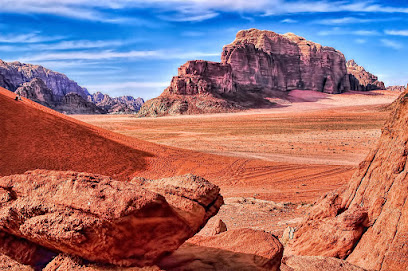
Museum at the Lowest Place on Earth
Discover the history and culture of the lowest point on Earth at the Museum at the Lowest Place on Earth, a unique heritage museum near the Dead Sea.
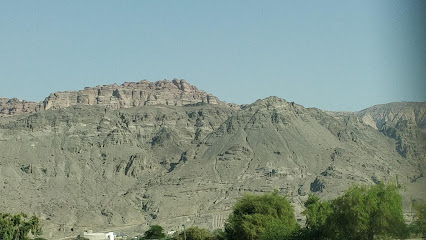
Wadi al Hasa
Discover the serene beauty of Wadi al Hasa, a stunning desert oasis in Jordan, perfect for hiking, photography, and nature exploration.
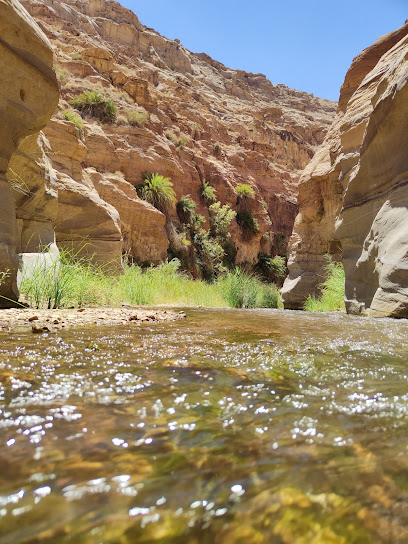
مخيم وادي الحسا السياحي wadi al hassa camp
Discover the serene beauty of Wadi Al Hassa Camp, a tranquil escape in Jordan offering cozy accommodations and endless outdoor adventures.
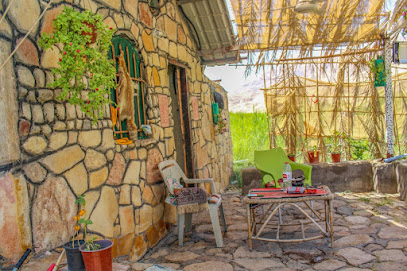
Lot's Cave
Discover the enchanting Lot's Cave in Gawr as-Safi, a historical landmark that intertwines biblical history with breathtaking landscapes in Jordan.

Wadi Al Hasa Hike Trail
Explore the breathtaking Wadi Al Hasa Hike Trail, a hidden gem in Jordan offering stunning landscapes and unforgettable hiking experiences.
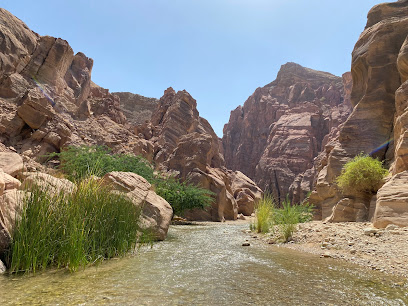
Sela' Castle
Explore Sela' Castle, a historical treasure in Jordan, where rich heritage meets breathtaking landscapes and unforgettable experiences await.
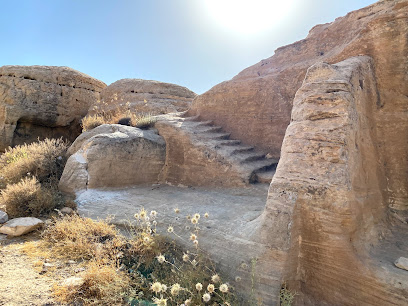
Khirbet et-Tannur
Discover Khirbet et-Tannur, a captivating historical landmark in Jordan with ancient ruins and rich archaeological heritage.
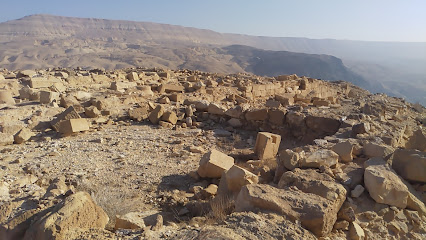
Unmissable attractions to see
The Monastery
Discover the breathtaking grandeur of The Monastery in Petra, Jordan, an archaeological wonder steeped in history and stunning natural beauty.
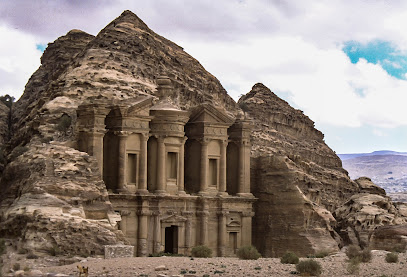
Al-Siq
Explore the stunning Al-Siq gorge, a natural marvel leading to Petra's ancient ruins, where history and breathtaking landscapes intertwine.
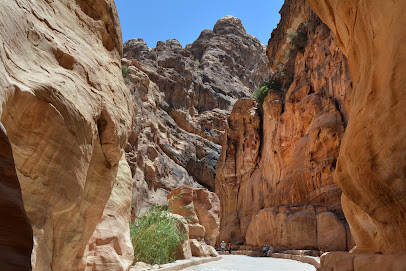
Museum at the Lowest Place on Earth
Uncover ancient secrets and archaeological wonders at the Museum at the Lowest Place on Earth, a fascinating journey through history by the Dead Sea.
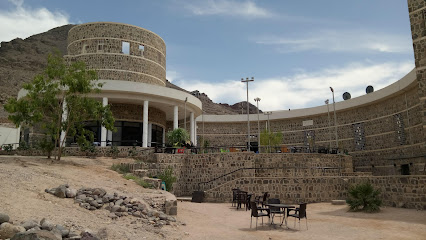
مخيم وادي الحسا السياحي wadi al hassa camp
Experience the serene beauty of Wadi Al Hassa Camp, a perfect blend of nature, adventure, and family-friendly activities in Jordan.
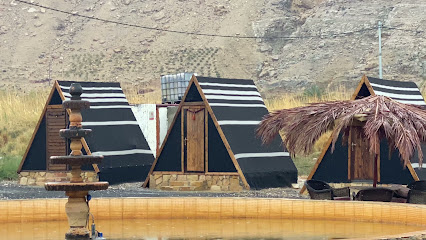
The site of the Battle of Mu'tah
Explore the Battle of Mu'tah, a historic site that tells the story of courage and conflict in the heart of Jordan's stunning landscape.
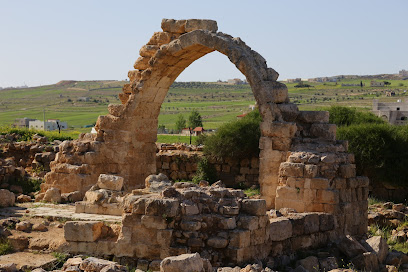
Sela' Castle
Explore Sela' Castle, a historical gem in As Sala' that offers stunning views and a glimpse into Jordan's rich heritage.
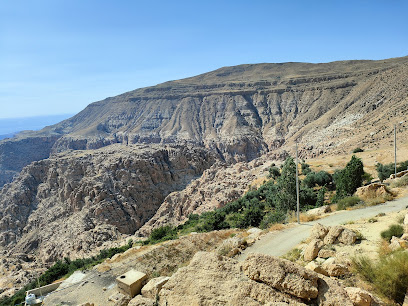
Wadi al hassa hiking trail
Discover stunning vistas and natural beauty at Wadi al Hassa Hiking Trail, a must-visit destination for outdoor enthusiasts in Jordan.
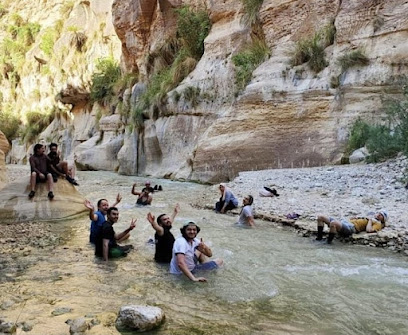
وادي النميرة
Discover the serene beauty and adventure of the Valley of the Nimri River, a must-visit natural attraction in Jordan for outdoor enthusiasts and nature lovers.
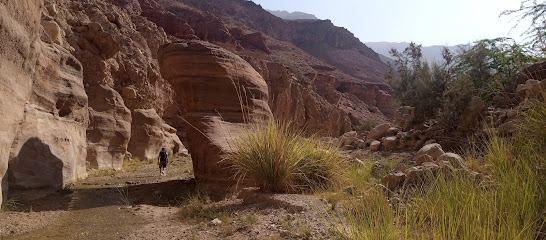
مننزه وحديقة ألعاب الشهيد معاذ الكساسبة
Experience tranquility and outdoor fun at شهيد معاذ الكساسبة Park and Play Area in At-Tafilah, a perfect destination for families and nature enthusiasts.
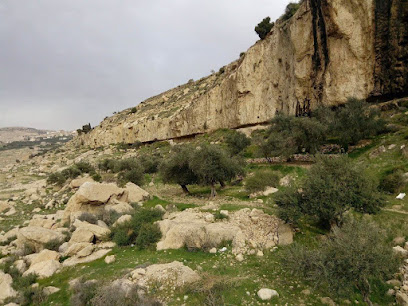
بئر مدين
Explore the enchanting بئر مدين in الاردن, where history meets natural beauty in a captivating tourist attraction.
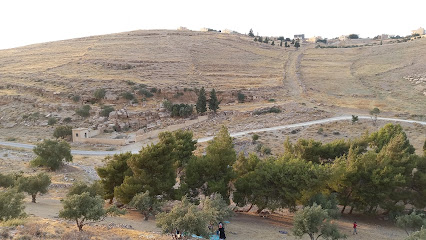
Dana Rose tours online only
Experience the stunning landscapes of Dana Nature Reserve with guided hikes that unveil the rich biodiversity of Jordan's outdoor haven.
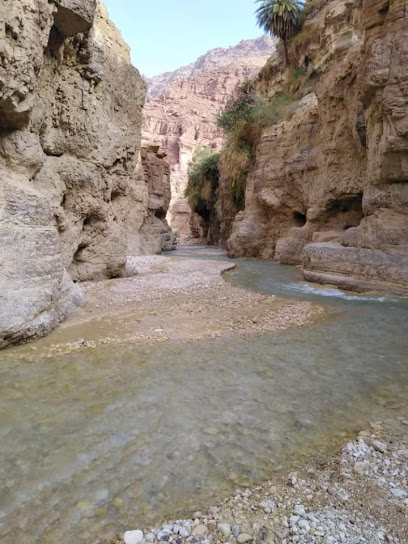
Upper Wadi Al-Hasa trail
Discover the breathtaking beauty of Upper Wadi Al-Hasa trail, a hiker's paradise in Jordan, featuring stunning landscapes and rich biodiversity.
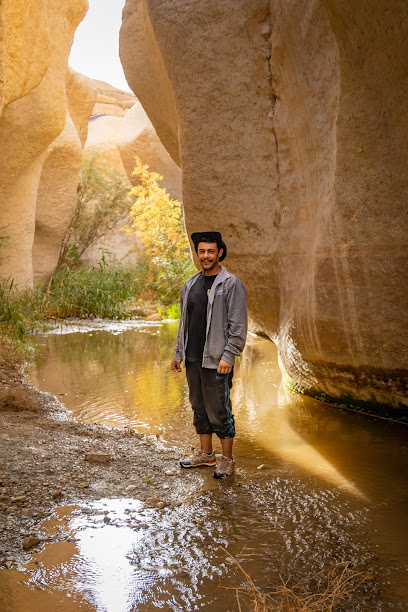
عالي شهاق
Experience the stunning natural beauty and rich cultural heritage of Al-Shahak, a must-visit tourist attraction in the heart of Jordan.
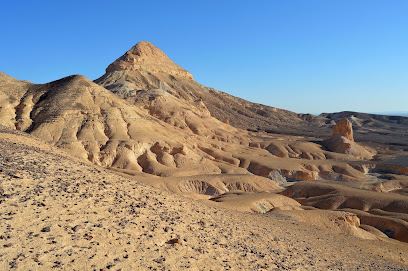
PALESTINE
Discover the natural beauty and serenity of Palestine State Park in At-Tafilah, a perfect retreat for nature lovers and adventure seekers.

سهل نميرة
Explore the breathtaking landscapes and rich history of سهل نميرة, a serene tourist attraction in the heart of Kerak, Jordan.
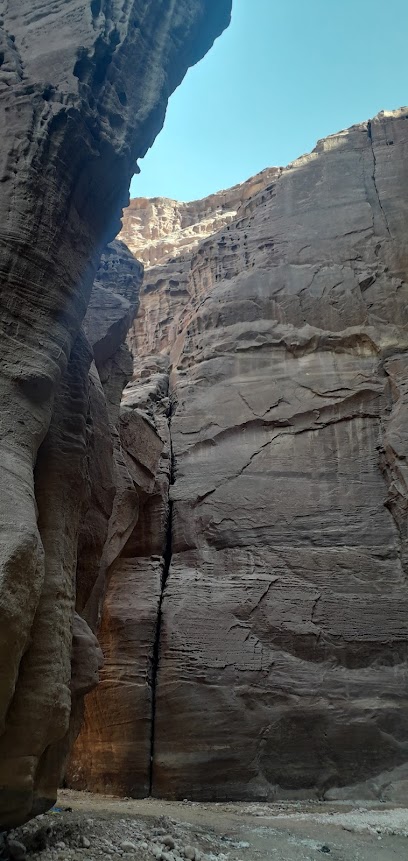
Essential places to dine
Al Wadi Restaurant
Discover authentic Jordanian flavors at Al Wadi Restaurant in Wadi Musa, where every dish tells a story and every meal is an experience.
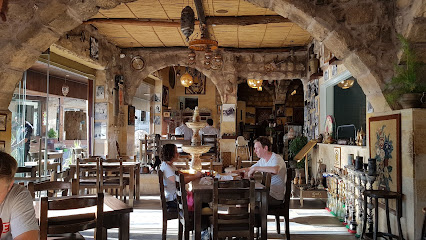
Abu Elias Restaurant
Experience authentic Jordanian cuisine at Abu Elias Restaurant in Wadi Musa – a culinary gem near Petra with exceptional service and inviting ambiance.
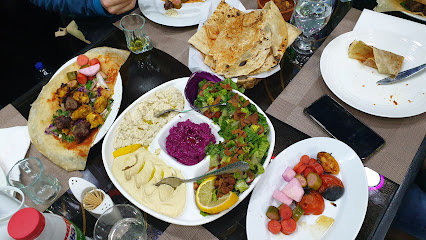
Falafel Time Restaurant
Discover authentic Jordanian flavors at Falafel Time Restaurant in Wadi Musa—your go-to spot for delicious falafel near Petra.
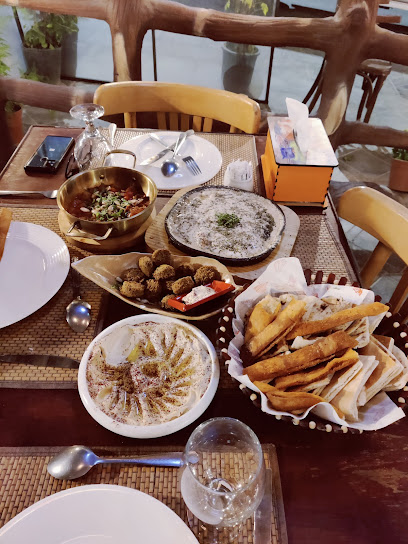
My Mom's Recipe Restaurant
Experience authentic Jordanian cuisine at My Mom's Recipe Restaurant in Wadi Musa, where every dish tells a story.
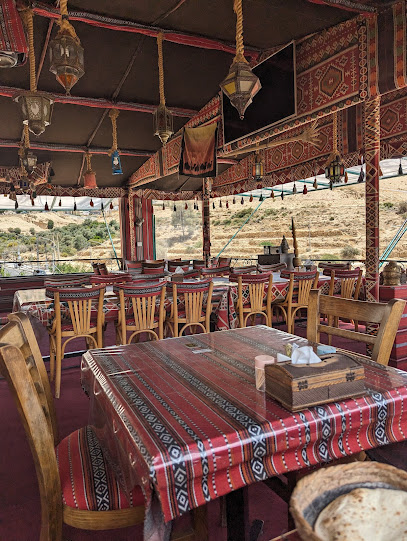
Pillars of Jerusalem
Experience authentic Jordanian cuisine at Pillars of Jerusalem - where every meal tells a story amidst stunning desert views.
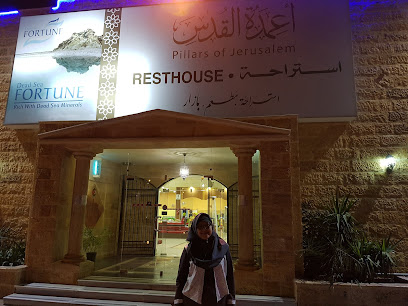
Reem Beladi Restaurant
Experience the rich flavors of authentic Jordanian cuisine at Reem Beladi Restaurant in Wadi Musa.
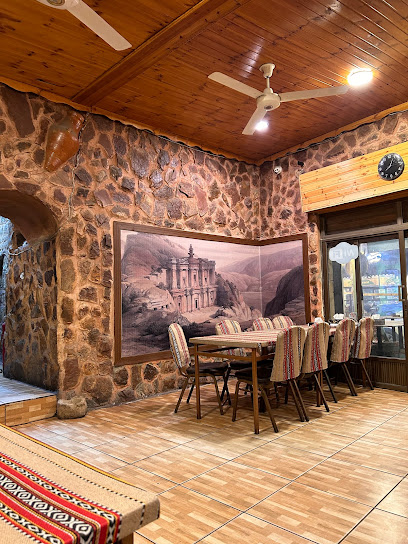
Beit Al-Barakah restaurant
Experience authentic Jordanian cuisine at Beit Al-Barakah Restaurant in Wadi Musa – where tradition meets flavor in every bite.
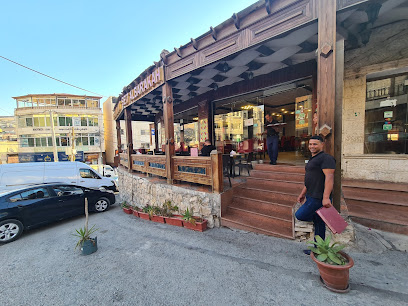
Alqantarah Restaurant
Experience authentic Jordanian cuisine at Alqantarah Restaurant in Wadi Musa, near Petra - where every dish tells a story.
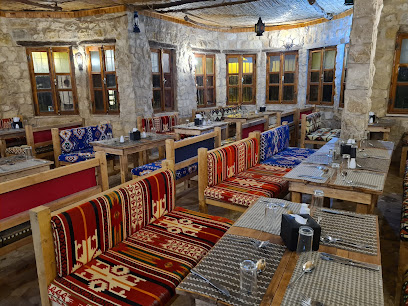
Sajiat Al janoob
Experience authentic Jordanian cuisine at Sajiat Al Janoob in Wadi Musa, where traditional flavors meet warm hospitality.
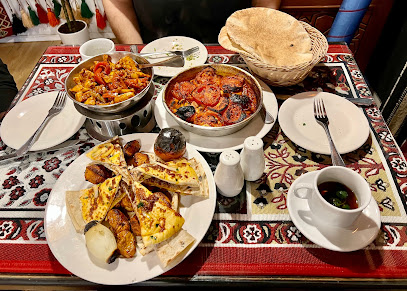
Time Out
Discover exceptional Jordanian cuisine at Time Out in Wadi Musa - your gateway to unforgettable flavors and memorable experiences.
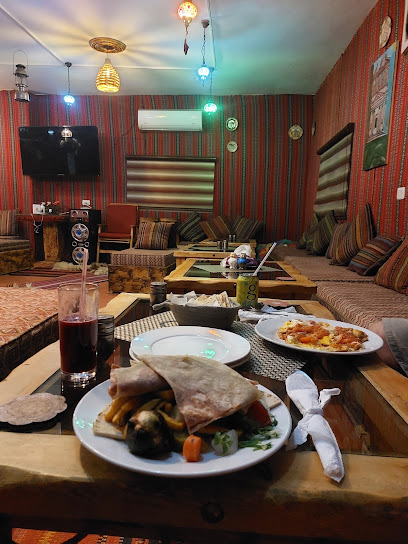
Jordan heart restaurant Petra
Experience authentic Jordanian cuisine at Jordan Heart Restaurant in Wadi Musa - where flavor meets tradition near Petra's ancient wonders.
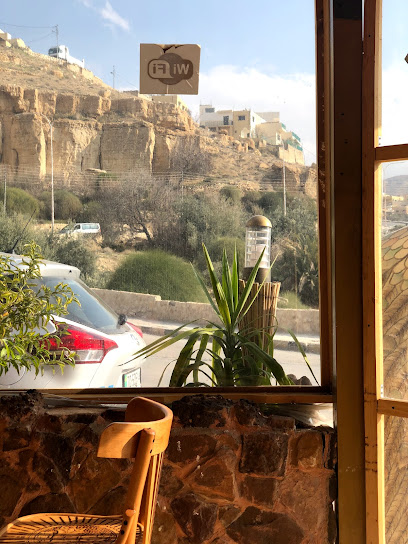
Rainbow Restaurant
Experience the vibrant culinary scene at Rainbow Restaurant in Wadi Musa - where local flavors meet fast food favorites.
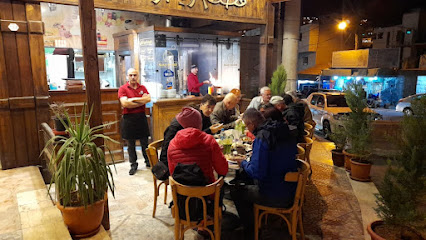
Al-Mehbash Restaurant
Experience authentic Jordanian flavors at Al-Mehbash Restaurant in Wadi Musa – where every dish tells a story.
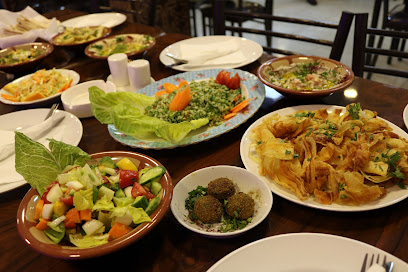
The Basin Restaurant
Experience authentic Jordanian cuisine at The Basin Restaurant in Petra - where stunning views meet exquisite flavors.
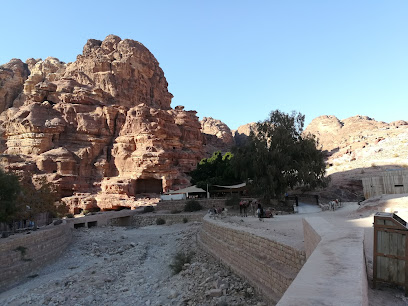
NEA local food
Experience authentic Jordanian flavors at NEA Local Food in Viva – where tradition meets taste.
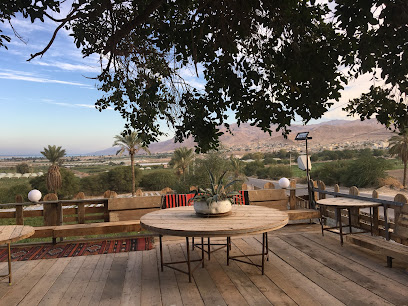
Markets, malls and hidden boutiques
World Nectar Makeup
Explore the vibrant beauty world at World Nectar Makeup, featuring local and international cosmetics for every style and occasion.
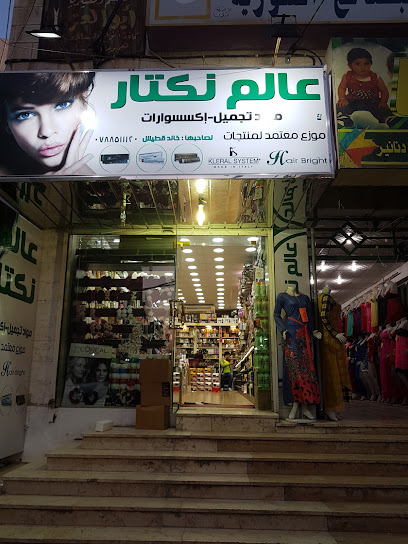
Gamers.JO
Discover a gamer’s paradise at Gamers.JO, offering a vast selection of video games, consoles, and exclusive merchandise for enthusiasts of all levels.

Town Bazaar
Discover unique clothing and authentic Jordanian styles at Town Bazaar, a charming clothing store in the heart of Jordan's vibrant culture.

Nawras Super Marke
Explore Nawras Super Market for a taste of local culture and everyday essentials while visiting Jordan.
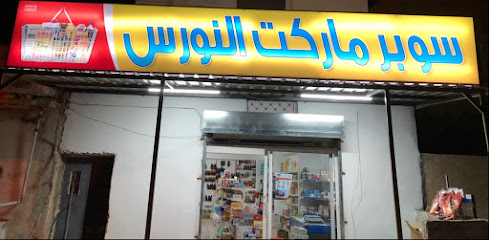
Na'racha Supermarket
Discover local flavors and unique products at Na'racha Supermarket, a vibrant marketplace for tourists and locals alike.
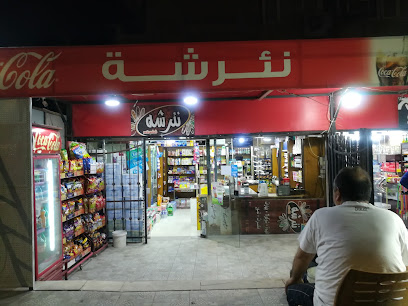
Nabataean Ladies Cooperative
Discover authentic Nabataean craftsmanship at the Ladies Cooperative in Wadi Musa, where tradition meets artistry in stunning silver creations.
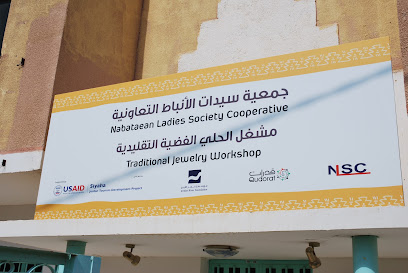
بقالة ابو جمال
Explore بقالة ابو جمال, a charming grocery store offering authentic local flavors and a taste of Jordanian culture.
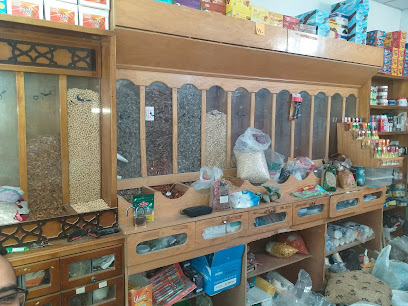
اسواق شادي
Discover the essence of local shopping at اسواق شادي, where quality products and friendly service await every visitor.

سيف للالبان
Experience the rich flavors of Jordan at Sif Dairy in At-Tafilah, a charming grocery store offering fresh, locally sourced dairy products.
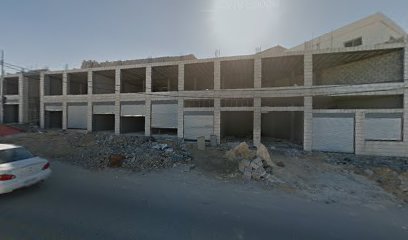
متجر منصة اثر
Explore unique local products and immerse yourself in the cultural richness at متجر منصة اثر, a top shopping destination for tourists.

N&H Store
Discover the vibrant shopping experience at N&H Store in Ayn Elbasha, where local culture meets quality products.

Joordan
Explore Joordan Gift Shop for unique souvenirs and local crafts that capture the essence of your travel experience.

Diamond House
Experience the vibrant local culture at Diamond House, your go-to destination for unique products and authentic shopping in a welcoming atmosphere.

Zarqa
Explore Zarqa, a vibrant city in Jordan filled with unique gift shops that showcase the rich culture and craftsmanship of the region.

Himalayan Foktalung Store
Explore the Himalayan Foktalung Store for local snacks and essentials in the heart of Jordan, perfect for every traveler.

Essential bars & hidden hideouts
The Cave Bar
Experience the charm of The Cave Bar in Wadi Musa, where unique history meets modern hospitality in a captivating atmosphere.
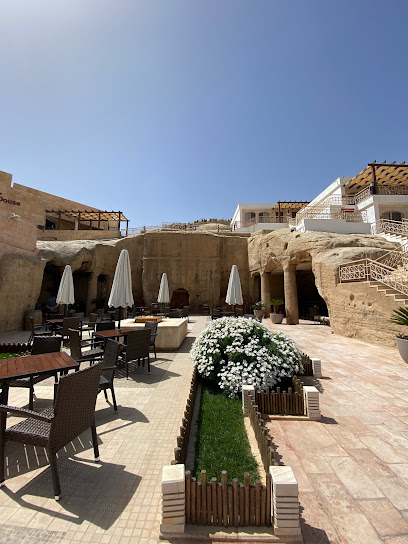
مخيم وادي الحسا السياحي wadi al hassa camp
Experience the beauty of nature at Wadi Al Hassa Camp, a perfect blend of adventure and relaxation in the heart of Jordan.
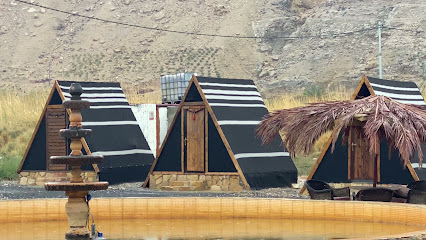
Kilkenny Bar
Discover the inviting ambiance of Kilkenny Bar, an Irish-inspired haven in Wadi Musa, perfect for unwinding after a day of exploring.
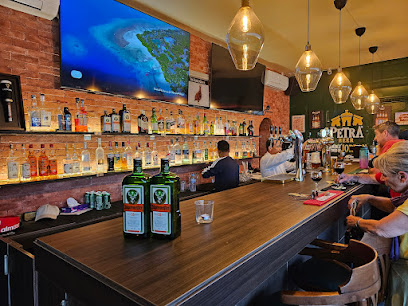
الخيمة الباجسية
Discover the essence of local nightlife at الخيمة الباجسية, a vibrant bar offering exceptional drinks and an inviting atmosphere.

مطعم وكفتيريا مخيم وادي الحسا
Experience the delicious tastes of مطعم وكفتيريا مخيم وادي الحسا, a fast-food haven in the heart of Wadi Al Hassa's stunning landscapes.
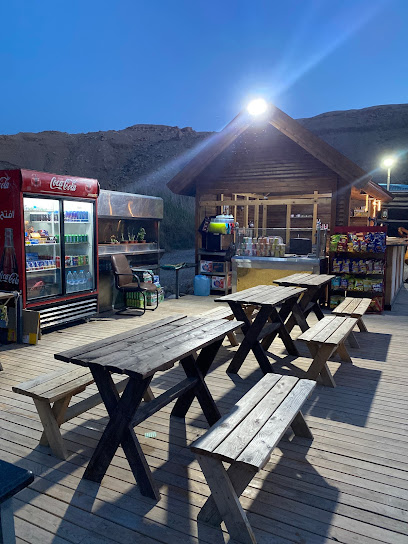
Samer 1
Experience the vibrant local culture at Samer 1 in Kerak, where unique drinks and a warm atmosphere await every visitor.
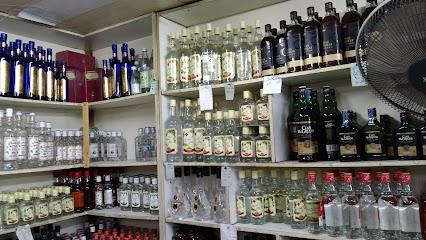
ديوان الشيخ يونس أبوهلالة
Unwind in the heart of Ma'an at ديوان الشيخ يونس أبوهلالة, where tradition meets tranquility in a cultural lounge experience.

Happy Fun Zone Cinema and Water Park
Experience endless fun at Happy Fun Zone Cinema and Water Park, where thrilling water slides meet the latest blockbuster movies, perfect for family adventures.
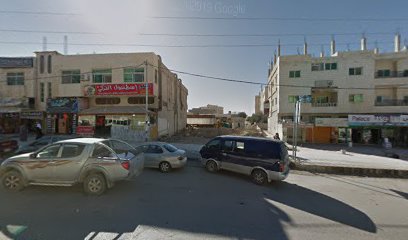
Al Khayyam Bar and Al Hana Lounge
Discover the elegance of Al Khayyam Bar and Al Hana Lounge, where luxury meets breathtaking views of the Dead Sea in a serene atmosphere.

Al Nadeem Bar & Terrace
Discover relaxation and breathtaking views at Al Nadeem Bar & Terrace in Wadi Musa, the perfect escape after exploring Petra's ancient wonders.
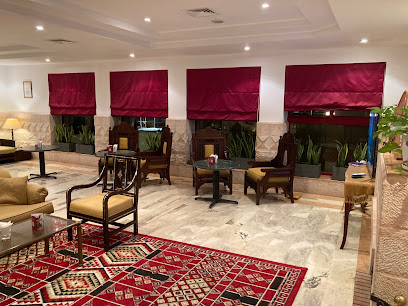
صالة جود
Discover the tranquil ambiance of صالة جود, a delightful lounge in At-Tafilah offering a perfect retreat for relaxation and local flavors.
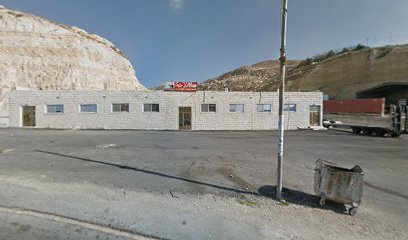
المرج
Discover the vibrant ambiance of المرج in Kerak, where local flavors and a lively atmosphere create unforgettable evenings for tourists.
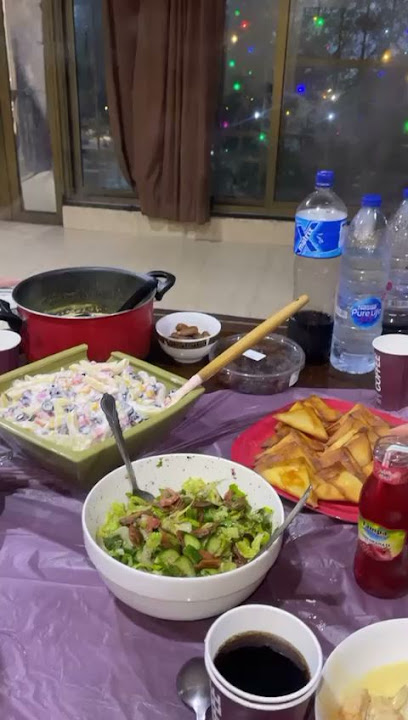
خالد الحولي
Experience the social heart of Kerak at Khalid Al-Houli Bar, a perfect spot for relaxation and local culture.

الفاتن
Discover the lively ambiance of الفاتن, where great drinks and vibrant nightlife in Rabba create unforgettable memories for every visitor.
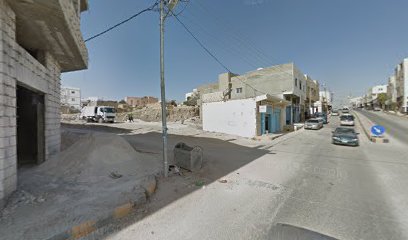
Local Phrases about Wadi Hasa
-
- Helloمرحبا
[marhaban] - Goodbyeوداعا
[wadaeana] - Yesنعم
[naam] - Noلا
[laa] - Please/You're welcomeمن فضلك
[min fadlik] - Thank youشكرا
[shukran] - Excuse me/Sorryعذرا
[aadhra] - How are you?كيف حالك؟
[kayf halak?] - Fine. And you?بخير. وأنت؟
[bikhayr. wa'ant?] - Do you speak English?هل تتحدث الإنجليزية؟
[hal tatahadath al'inglizia?] - I don't understandأنا لا أفهم
[ana la afham]
- Helloمرحبا
-
- I'd like to see the menu, pleaseأريد أن أرى القائمة، من فضلك
[urid an ara alqaimah, min fadlik] - I don't eat meatأنا لا آكل اللحم
[ana la aakul allahm] - Cheers!في صحتك!
[fi sahtak!] - I would like to pay, pleaseأود أن أدفع، من فضلك
[awad an adfae, min fadlik]
- I'd like to see the menu, pleaseأريد أن أرى القائمة، من فضلك
-
- Help!النجدة!
[alnajdah!] - Go away!اذهب بعيدا!
[adhhab baeedan!] - Call the Police!اتصل بالشرطة!
[iatisal bialshurtah!] - Call a doctor!اتصل بطبيب!
[iatisal batabeeb!] - I'm lostلقد ضللت الطريق
[laqad dalalt altareeq] - I'm illأنا مريض
[ana mareed]
- Help!النجدة!
-
- I'd like to buy...أريد أن أشتري...
[urid an ashtari...] - I'm just lookingأنا فقط أتفرج
[ana faqat atfarij] - How much is it?كم سعره؟
[kam saeruh?] - That's too expensiveهذا غالي جدا
[hatha ghali jidan] - Can you lower the price?هل يمكنك تخفيض السعر؟
[hal yumkinuk takhfeed alsaeer?]
- I'd like to buy...أريد أن أشتري...
-
- What time is it?كم الساعة؟
[kam alsaeah?] - It's one o'clockالساعة الواحدة
[alsaeah alwahidah] - Half past (10)نصف (10)
[nisf (10)] - Morningصباح
[sabah] - Afternoonبعد الظهر
[baed aldhuhur] - Eveningمساء
[masaa] - Yesterdayالبارحة
[albarihah] - Todayاليوم
[alyawm] - Tomorrowغدا
[ghadan] - 1واحد
[wahid] - 2اثنان
[ithnan] - 3ثلاثة
[thalatha] - 4أربعة
[arbaah] - 5خمسة
[khamsah] - 6ستة
[sittah] - 7سبعة
[sabah] - 8ثمانية
[thamaaniyah] - 9تسعة
[tis'ah] - 10عشرة
[asharah]
- What time is it?كم الساعة؟
-
- Where's a/the...?أين ...؟
[ayn ...?] - What's the address?ما هو العنوان؟
[ma hu al'iinan?] - Can you show me (on the map)?هل يمكنك أن تريني (على الخريطة)؟
[hal yumkinuk an tureeni (ala alkharyata)?] - When's the next (bus)?متى يأتي الحافلة التالية؟
[mata yaati alhafilat altaalia?] - A ticket (to ....)تذكرة (إلى ...)
[tadhkirat (ila ...)]
- Where's a/the...?أين ...؟
History of Wadi Hasa
-
Wadi Hasa, a stunning canyon in Jordan, was once a significant pathway for the Nabateans. Known for their remarkable city of Petra, the Nabateans utilized Wadi Hasa as a crucial trade route. Evidence of their presence can still be found in the form of inscriptions and artifacts scattered throughout the area, providing a glimpse into their sophisticated civilization and their control over the Arabian trade routes.
-
During the Roman period, Wadi Hasa became an integral part of the Roman Empire's infrastructure. The Romans were renowned for their engineering prowess, and they constructed aqueducts and roads that traversed the wadi. These constructions facilitated the movement of troops and goods, reinforcing the strategic importance of Wadi Hasa in the larger Roman provincial network.
-
The Byzantine era saw Wadi Hasa becoming a focal point for early Christian communities. Monasteries and churches were established in the region, as it provided a secluded and serene environment conducive to monastic life. The remnants of these religious structures offer insight into the spread of Christianity and the architectural styles of the Byzantine period.
-
Wadi Hasa flourished during the Islamic Golden Age, particularly under the Umayyad and Abbasid Caliphates. The region witnessed significant agricultural advancements, with the introduction of sophisticated irrigation techniques that harnessed the seasonal waters of the wadi. These developments not only sustained local communities but also contributed to the broader agricultural productivity of the area.
-
In the Ottoman period, Wadi Hasa continued to play a role in the regional dynamics of Jordan. The Ottomans implemented administrative changes that impacted the local tribes and agricultural practices. The advent of modernity brought new challenges and opportunities, shaping the socio-economic landscape of Wadi Hasa as it transitioned into the contemporary era.
Wadi Hasa Essentials
-
Wadi Hasa is located in the Karak Governorate of Jordan. The nearest international airport is Queen Alia International Airport in Amman, approximately 160 kilometers away. From Amman, you can take a taxi or a bus to Karak, and then a local taxi or bus to Wadi Hasa. The journey typically takes around 2 to 3 hours by road. Using a private car or a rental vehicle is also a convenient option, especially for those planning to explore the area extensively.
-
Within Wadi Hasa, the most common mode of transportation is by car. Renting a car provides the flexibility to explore the various attractions at your own pace. Taxis are available but may need to be arranged in advance, especially for return trips. Public buses and minibuses (service taxis) run between major towns and cities, but their schedules can be irregular. For more remote areas, walking and hiking are often the best ways to explore.
-
The official currency in Jordan is the Jordanian Dinar (JOD). Credit cards are accepted in some hotels, restaurants, and shops, but it is advisable to carry cash, especially in smaller establishments and rural areas. ATMs are available in major towns like Karak, but it's wise to withdraw sufficient cash before traveling to Wadi Hasa to ensure you have enough funds for your trip.
-
Wadi Hasa is generally a safe destination for tourists. However, like any travel destination, it is advisable to take standard precautions. Avoid walking alone at night in unfamiliar areas and keep an eye on your belongings in crowded places. There are no specific high-crime areas targeting tourists, but it is always best to stay vigilant and aware of your surroundings.
-
In case of emergency, dial 911 for immediate assistance. The local police station and medical facilities are available in Karak. It is recommended to have travel insurance that covers medical emergencies. For minor health issues, there are pharmacies in Karak where you can purchase over-the-counter medications. Carrying a basic first-aid kit is also advisable when exploring remote areas.
-
Fashion: Do dress modestly, especially when visiting religious sites and rural areas. Avoid wearing revealing clothing. Religion: Do respect local customs and traditions. Always cover your head when entering religious sites. Public Transport: Do be respectful and give up your seat to elderly passengers. Don’t eat or drink on public transport. Greetings: Do greet people with a handshake. A slight bow of the head is also a sign of respect. Eating & Drinking: Do try local delicacies and accept food offerings graciously. Don’t refuse hospitality, as it is considered impolite.
-
To experience Wadi Hasa like a local, visit the local markets where you can buy fresh produce and traditional Jordanian goods. Engage with locals, as they are often friendly and willing to share stories about the area's history and culture. Don’t miss the natural hot springs and the scenic canyon hikes. For a unique experience, join a local guide for a trek through the wadi, which offers stunning landscapes and hidden waterfalls.
Nearby Cities to Wadi Hasa
-
Things To Do in Dana
-
Things To Do in Kerak
-
Things To Do in Masada
-
Things To Do in Petra
-
Things To Do in Ein Gedi
-
Things To Do in Ma'an
-
Things To Do in Dead Sea
-
Things To Do in Madaba
-
Things To Do in Beersheba
-
Things To Do in Bethlehem
-
Things To Do in Jerusalem
-
Things To Do in Amman
-
Things To Do in Salt
-
Things To Do in Modi'in
-
Things To Do in Ashdod





